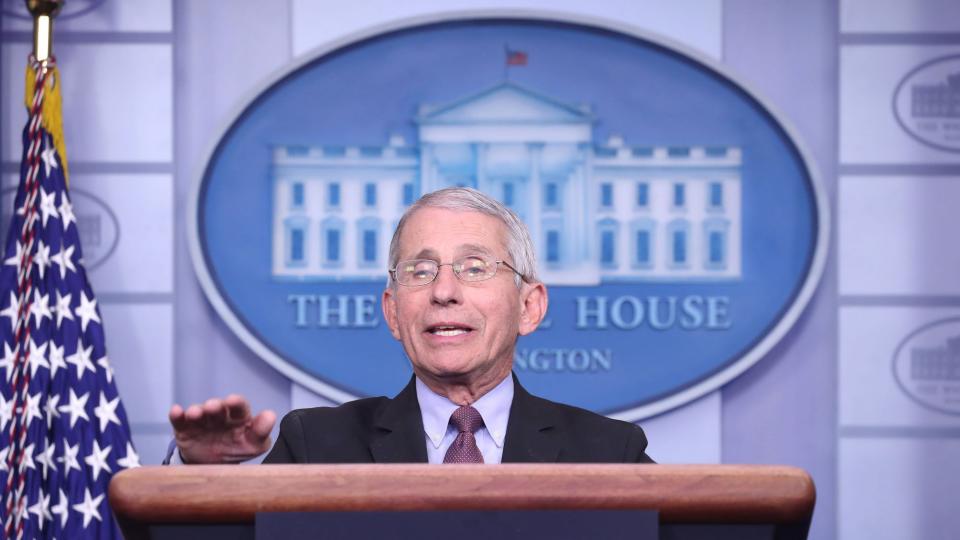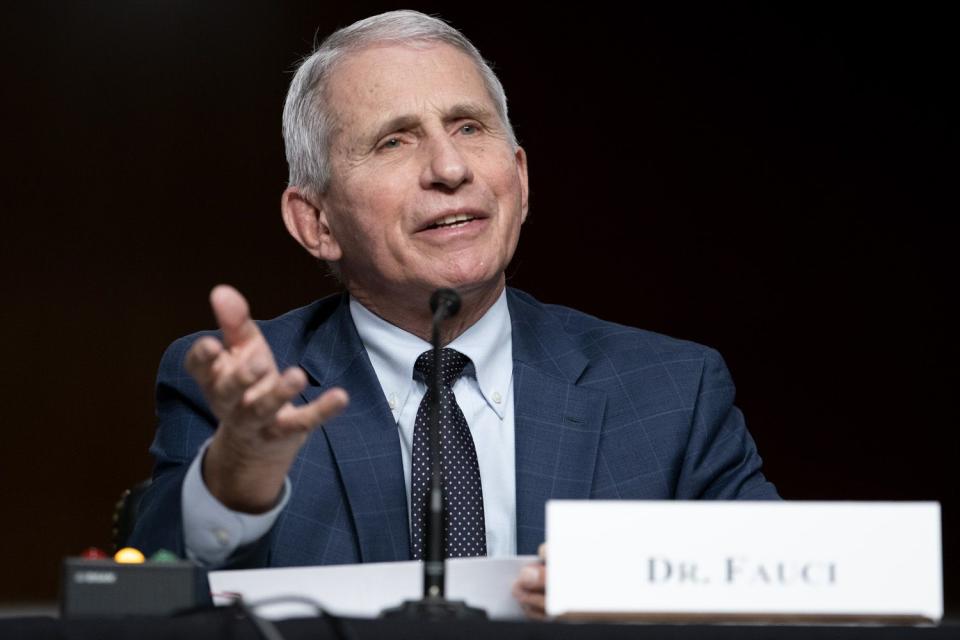Dr. Anthony Fauci to Step Down in December as Nation's Top Infectious Disease Expert

- Oops!Something went wrong.Please try again later.
Dr. Anthony Fauci has announced that he will step down from his director role at the National Institute of Allergy and Infectious Diseases by the end of the year.
After leading the organization for more than three decades, Fauci, 81, said Monday in an interview with The New York Times that he plans to leave the NIAID in December in order to "pursue the next chapter" of his career.
He explained that he's "not retiring in the classic sense" and will spend his time traveling, writing, and encouraging the younger generation to enter government service.
"So long as I'm healthy, which I am, and I'm energetic, which I am, and I'm passionate, which I am, I want to do some things outside of the realm of the federal government," Fauci told the outlet.
Following the announcement, President Joe Biden praised Fauci for his dedication to the role since 1984. He reflected on Fauci's work when they "tackled" the COVID-19 pandemic together.
"I came to know him as a dedicated public servant, and a steady hand with wisdom and insight honed over decades at the forefront of some of our most dangerous and challenging public health crises," Biden said in a statement. "His commitment to the work is unwavering, and he does it with an unparalleled spirit, energy, and scientific integrity."
"Because of Dr. Fauci's many contributions to public health, lives here in the United States and around the world have been saved. As he leaves his position in the U.S. Government, I know the American people and the entire world will continue to benefit from Dr. Fauci's expertise in whatever he does next," the president added. "Whether you've met him personally or not, he has touched all Americans' lives with his work. I extend my deepest thanks for his public service. The United States of America is stronger, more resilient, and healthier because of him."
RELATED: Dr. Anthony Fauci's Esteemed Career in Photos

Shutterstock Dr. Anthony Fauci
Never miss a story — sign up for PEOPLE's free daily newsletter to stay up-to-date on the best of what PEOPLE has to offer, from juicy celebrity news to compelling human interest stories.
Fauci first discussed his plans to resign from the director role last month, sharing only that he planned to step down before the next presidential term, PEOPLE confirmed.
"We're in a pattern now. If somebody says, 'You'll leave when we don't have Covid anymore,' then I will be 105. I think we're going to be living with this," Fauci said in an interview with Politico when asked if he had stayed on as director out of a "sense of obligation."

Greg Nash-Pool/Getty Images Dr. Anthony Fauci
Decades before the COVID-19 pandemic began in the U.S. in March 2020, Fauci worked to combat the HIV/AIDS epidemic in the 1980s and 1990s. In addition to serving as the director of NIAID, he was the first director of the National Institutes of Health's Office of AIDS Research when it was established in 1988.
When asked what he hopes his legacy will be after he steps away, he pointed to that work.
Fauci told Politico that the founding of the President's Emergency Plan for AIDS Relief, or PEPFAR, which was established while working under President George W. Bush, "may be the most impactful thing I have done in my career." PEPFAR has helped save 21 million lives, the State Department estimates.

